on
Build a career in data science (Conference talk)
Recently I spoke at the Toronto Womxn in Data Science conference about my career journey. From economics to video game development, how did I end up here in data science?
In this article based on the talk, I share the career building approaches I took when I was a new grad, as well as when I was looking for career growth after gaining professional experience as a data scientist.
- I had to google what data science was… my full data science story
- Steps I took as a new grad
- Steps I took with professional DS experience
I had to google what data science was… my full data science story
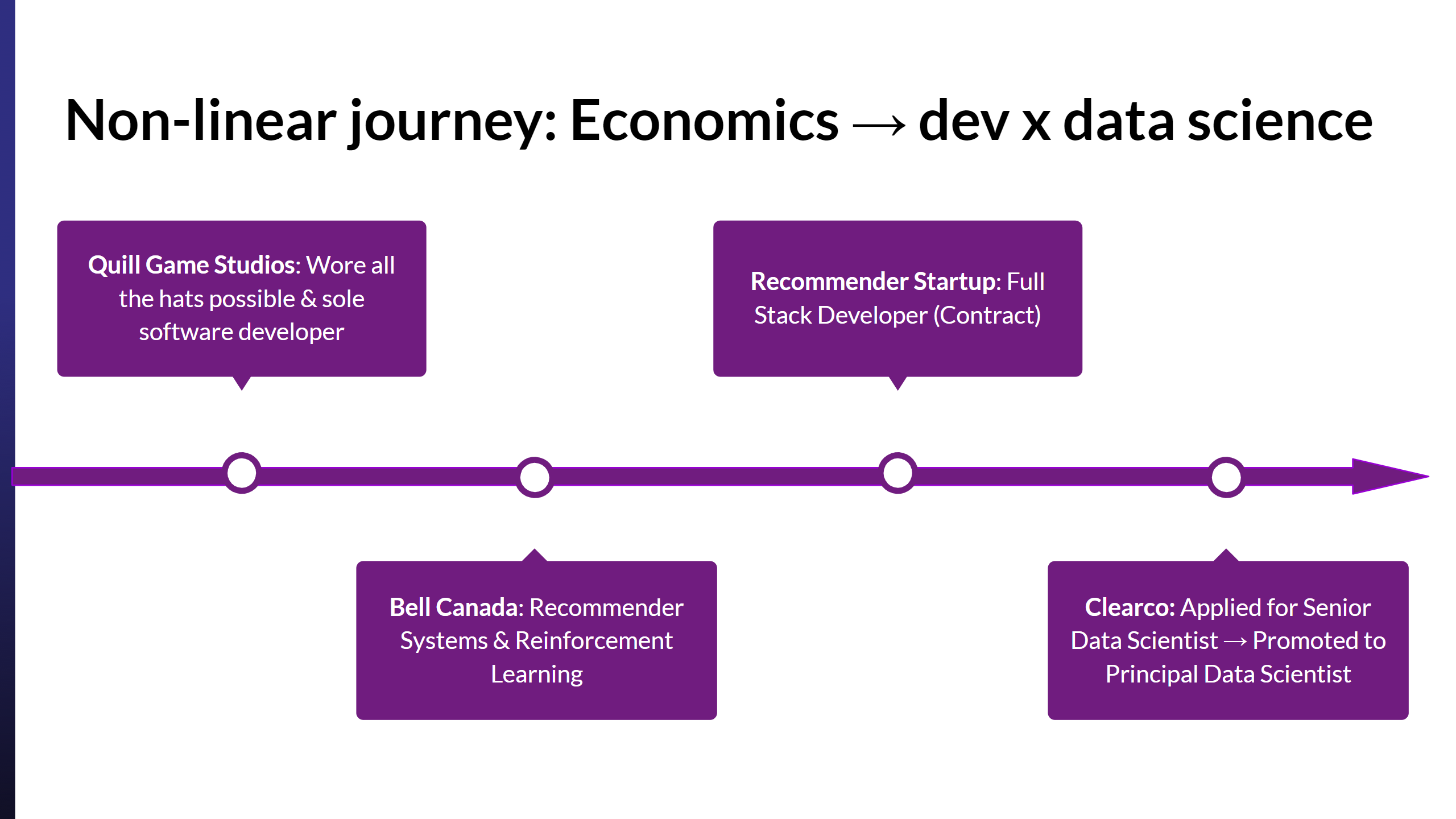 My career journey, mapped out.
My career journey, mapped out.
Here’s the story of how I got into data science.
In university, I studied Economics at the University of Waterloo, where I failed 3 courses and got kicked out of my major. After recovering my grades, I thought about exploring entrepreneurship (translation: half-preparing for the chance no one would hire me), and entered the student branch of the Velocity entrepreneurship program, a well-known incubator in the area.
I had been learning programming outside of my formal education, just for fun, since I was an avid gamer. When Overwatch first released, I played 70 hours in 7 days after launch (Reinhardt and Lucio).
Anyhow, I started working on ideas for my first game, building some prototypes, most of which were scrapped until I landed on a more solid idea - a visual novel about dogs fighting for social standing on an Island. Technically, I started work on this idea after undergrad, but owe a lot to that time in the student incubator. Finding out what doesn’t work can be half the battle.
With my Economics grades bouncing back, and even earning top in class in 4th year Econometrics (statistics methods for economics), I was accepted to the University of Toronto for my master’s in Economics, one of the most competitive programs in Canada.
At this point, I had no idea that there was a whole industry called data science. I had done a full undergrad and was partway through my master’s, when a friend mentioned to me: “Hey, you know programming, and you’re good at stats. You could probably check out data science jobs!”
I googled “what is data science” that day. It was a light bulb moment - “woah, there is a field where I don’t need to discard one of my two skill trees!”
I mention this, since there are people who have been preparing for data science roles since undergrad or earlier, and still worry that they are behind. If I wasn’t too late, I doubt it will be too late for you. :)
My path was not linear… but neither were many people’s.
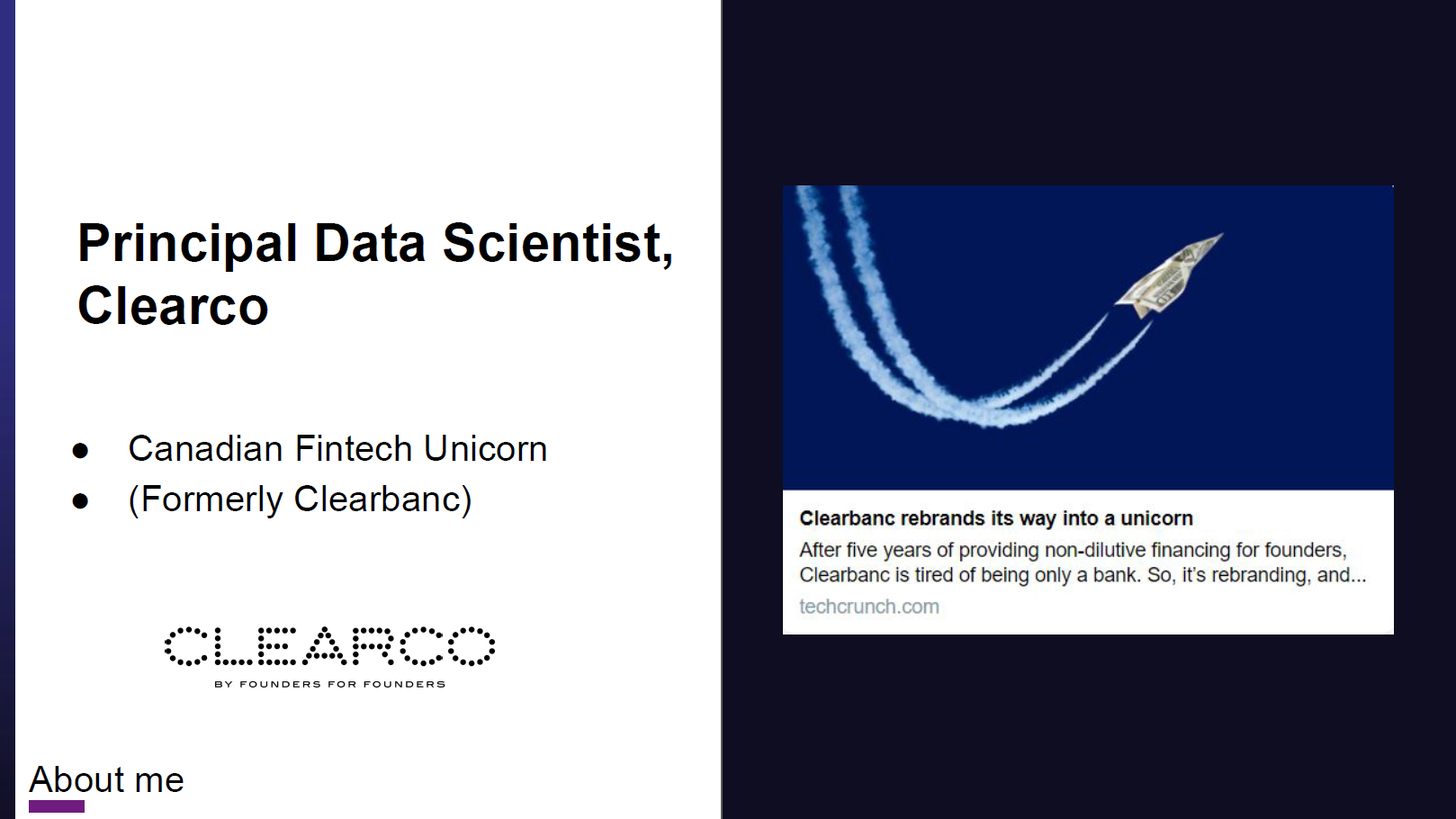 I’ve come a long way! But I didn’t know about data science as a career option until after undergrad.
I’ve come a long way! But I didn’t know about data science as a career option until after undergrad.
Fast forward a couple of years, I felt that it was time to seek out a new opportunity. I wrote more about career growth considerations in this post, but anyhow, now I am a Principal Data Scientist at Clearco.
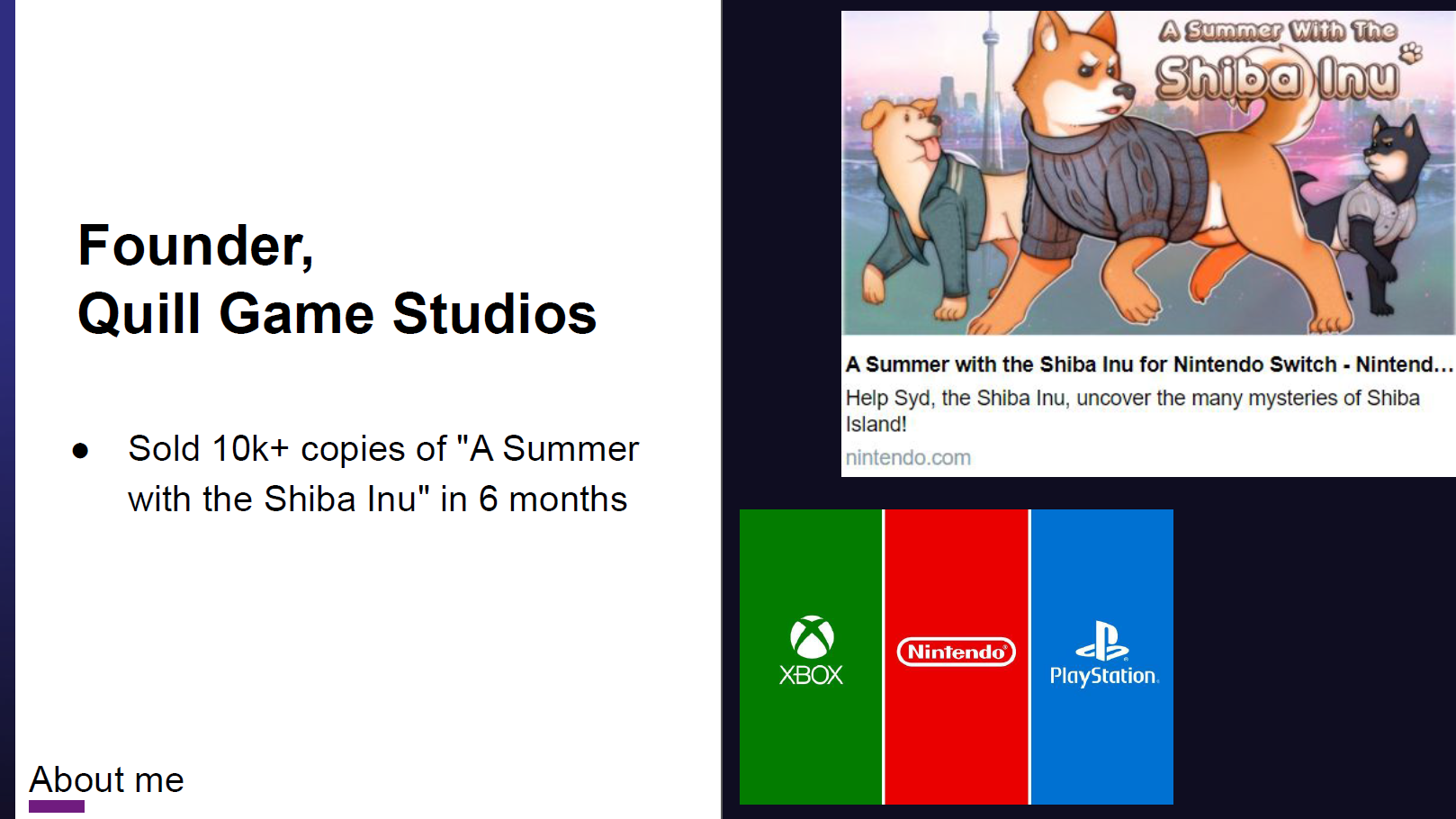 My game development “hobby” had a glow-up, as well.
My game development “hobby” had a glow-up, as well.
As a continuation to the video game development story that began when I was in undergrad, I eventually coded and shipped my first game on weekends, alongside working full time. I wrote about the process in this post, and the time management techniques that I refined over many years, and used to accomplish that, in this post.
Steps I took as a new grad
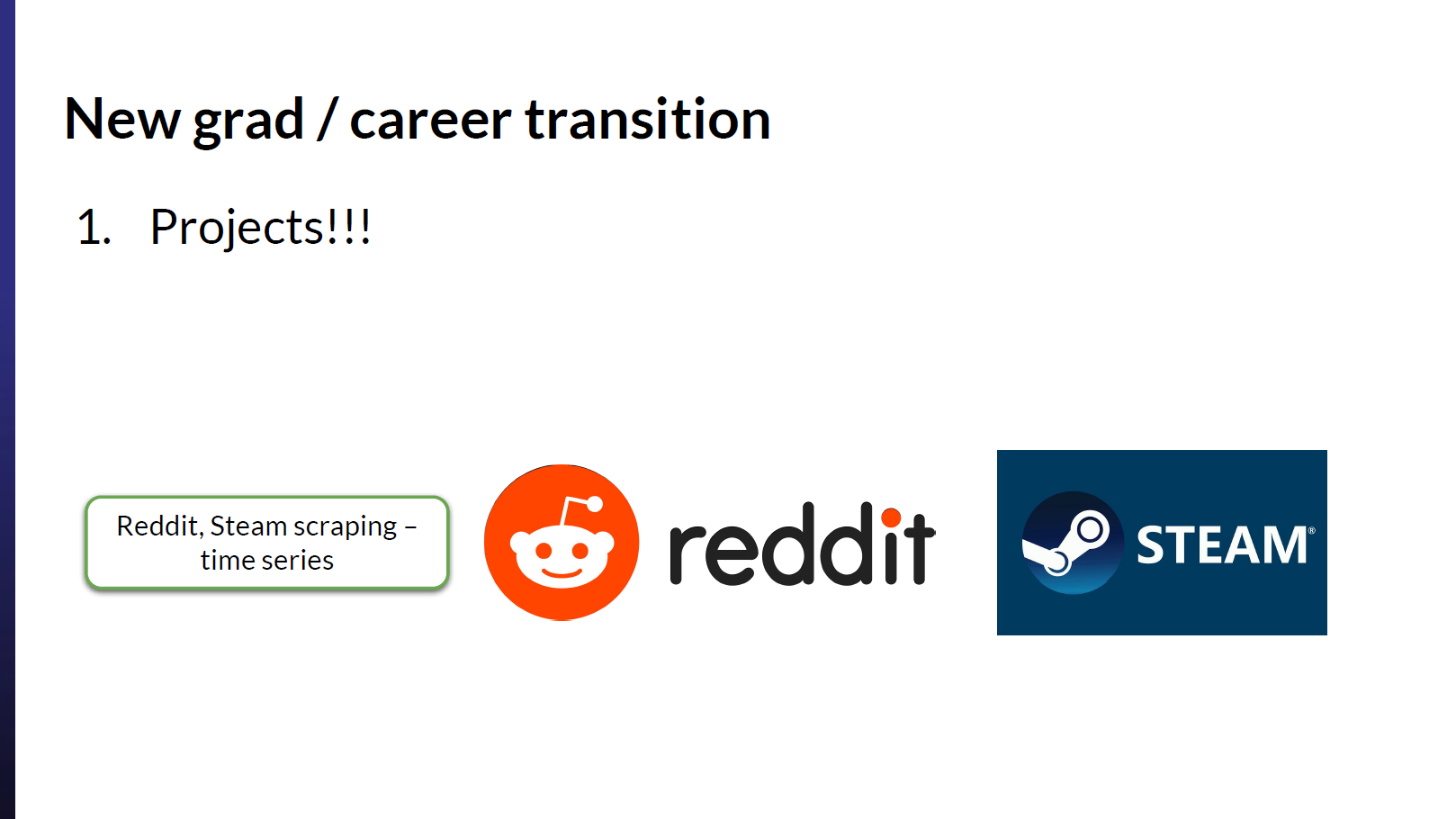 Finding a data science job as a new grad: side projects helped me succeed.
Finding a data science job as a new grad: side projects helped me succeed.
I mentioned learning about data science as a career option when I was studying for my master’s degree in Economics. At the time, I had experience in Python programming due to game development, but had no way to “prove” it, since my game hadn’t been completed and shipped yet, much less had the sales results I show now.
My formal education didn’t have anything related to Python either - in economics it was more common to use Stata (a proprietary statistical software), or R. However, term papers were an opportunity for me, due to the following:
- The topics were self-determined, allowing me to go the extra mile and use Python to scrape a raw dataset
- This demonstrated the ability to work with data end-to-end, which looks great on data science resumes compared to cookie cutter projects
- This worked both toward my master’s degree and a career in data science - I wasn’t wasting my existing skills. More on “turning deficits into time-saving discounts”
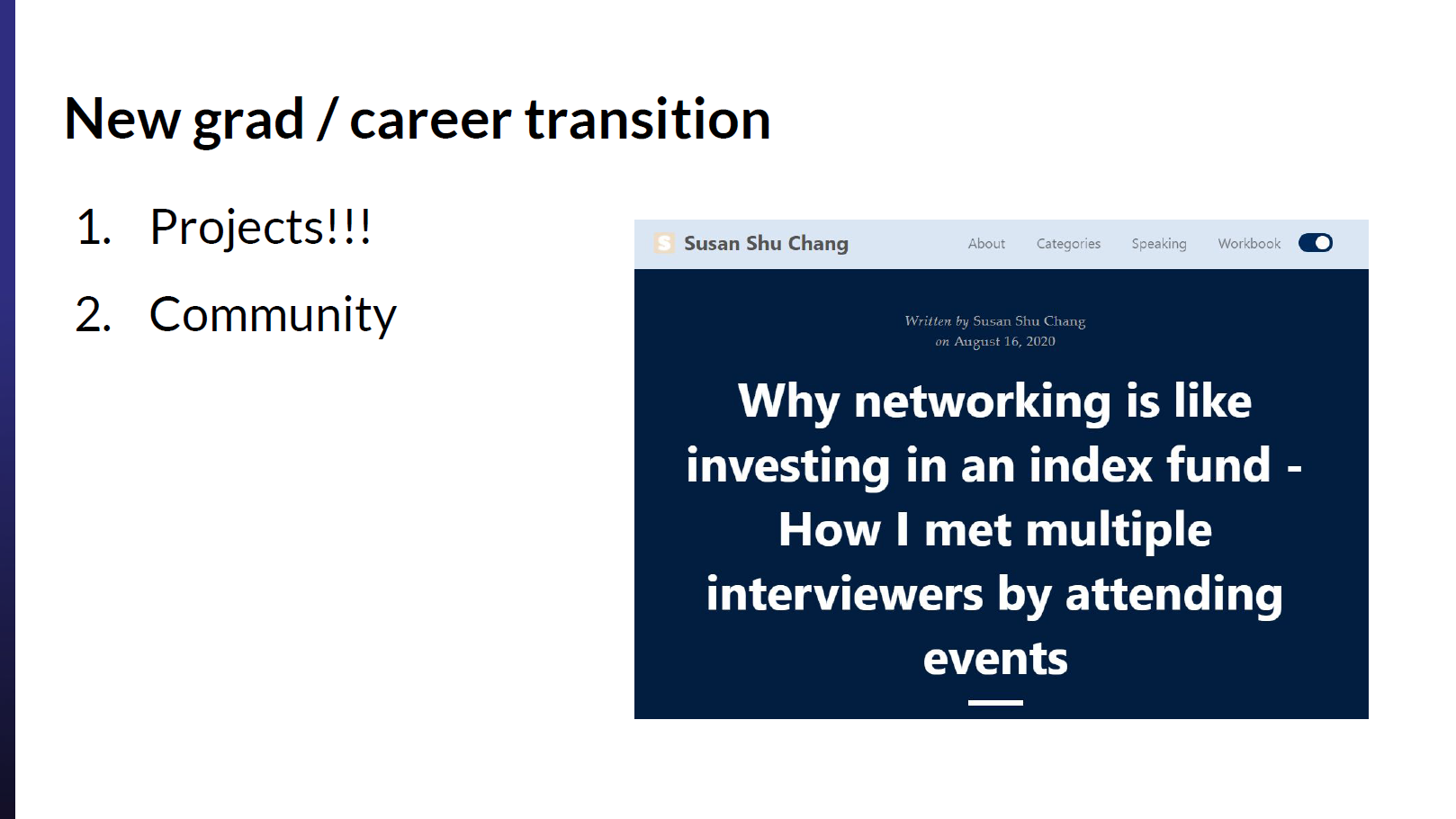 Finding a data science job as a new grad: Attending conferences and events.
Finding a data science job as a new grad: Attending conferences and events.
I also set aside time to attend events consistently. One thing I stress to folks who ask me for tips on “networking”, is to just stick with it long term - it is not something that yields immediate results. I coincidentally met two of my interviewers at events while seeking my first full-time role, but this was out of the near-hundred events I had attended over the years.
I wrote in detail about how I built up the “two pillars” of my data science skills in this post, and my interview preparation tips as a new grad in this post.
How much do online courses really help on data science resumes?
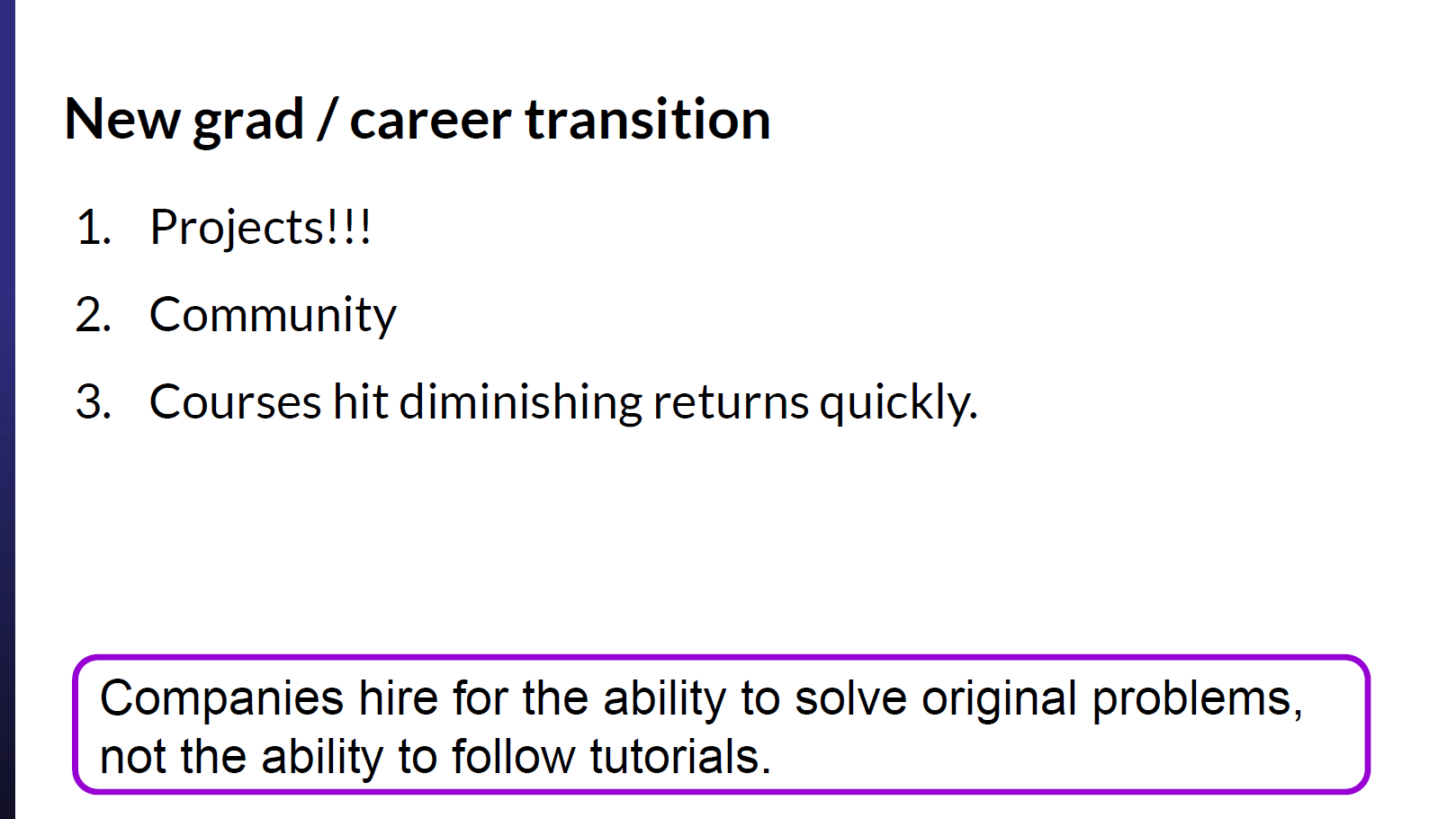
One thing I often mention during coffee chats about whether someone should take more online courses or certifications is this:
- All else held constant, 3 courses is likely better than 1 course.
- However, after around 5 courses/certifications listed on one’s resume, there are diminishing returns.
- This means that all else held constant, 10 courses help roughly the same as 7 courses, and is also not too different from 5 courses.
This needs repeating: Companies hire for the ability to solve original problems, not the ability to follow tutorials. This is why I always recommend side projects for learning, after one has learned some basics from courses/certifications.
Steps I took with professional DS experience
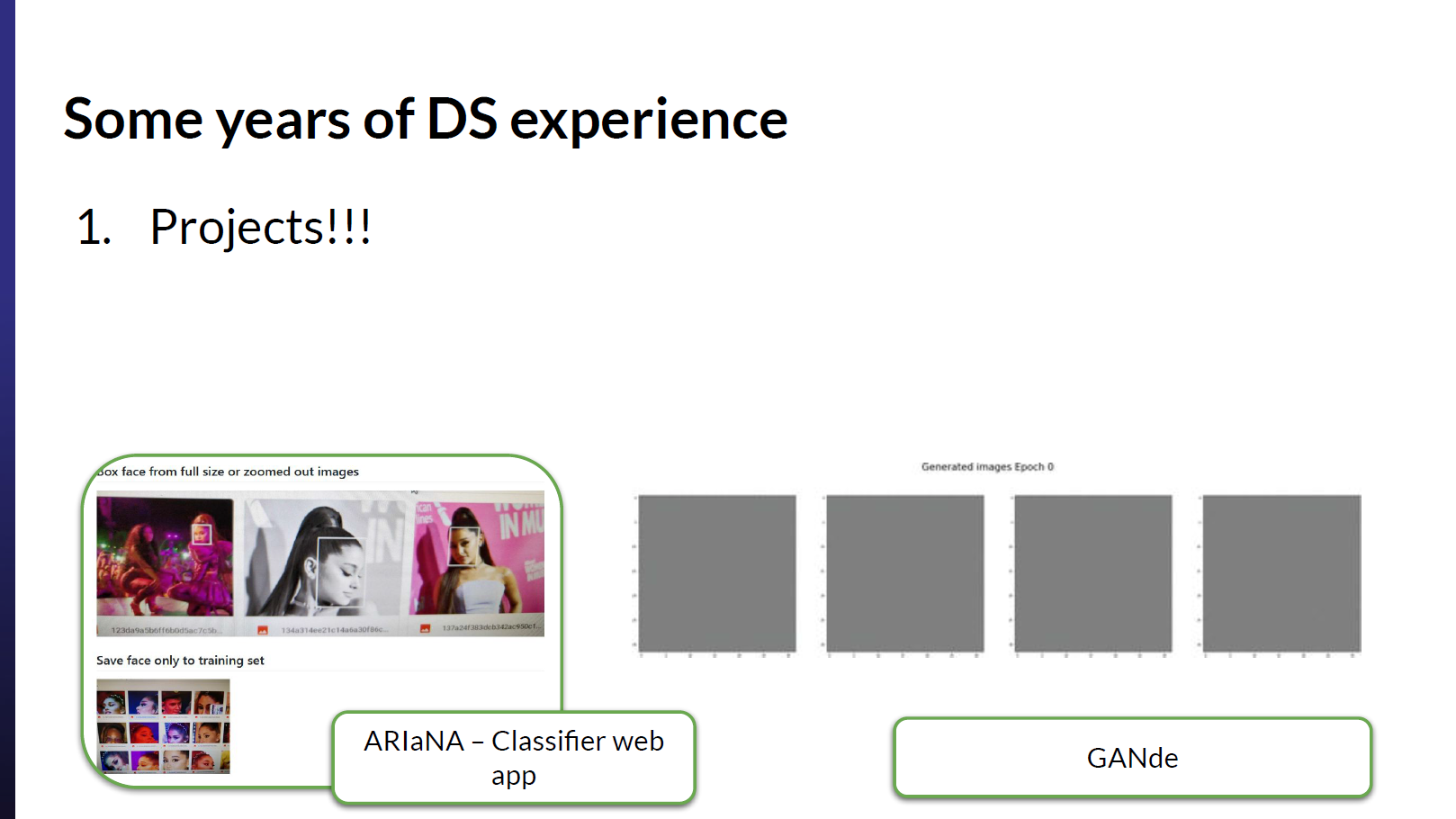
 Even with professional experience, side projects were great conversation starters on my resume.
Even with professional experience, side projects were great conversation starters on my resume.
After some experience under my belt, what were my approaches for career growth as a data scientist?
Funnily enough, I still recommend (side) projects. Work projects are great and all, but there might be limits to what one can describe about professional projects.
From my experience, it’s really helpful in interviews to speak to the decision making process (perhaps more important for non-junior roles). Depending on the company or team, this is less feasible for many junior folks, who may be given verbose instructions on what to do.
When asked in an interview, they are unable to speak much to tradeoffs between picking this or that algorithm, but there is no limit to gaining this experience through self-directed side projects.
This wasn’t the case for myself, as I was able to determine a lot of the data science specific choices in my work projects, but I have encountered folks with this dilemma during coffee chats, so I mention this as an interview tip.
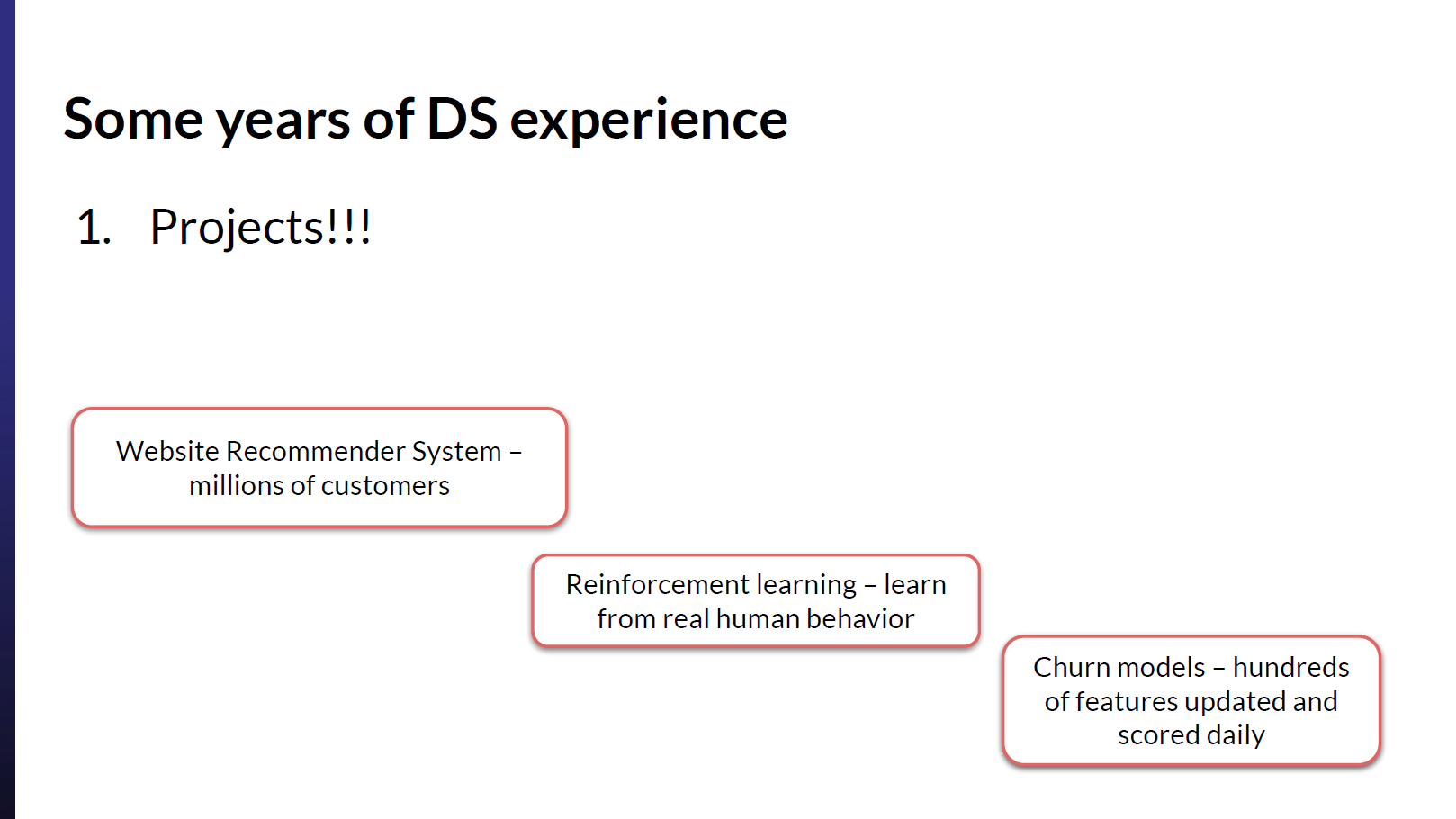 Work projects - self-explanatory.
Work projects - self-explanatory.
Of course - work projects are good to have on one’s resume. So my recommendation on having “projects” doesn’t really change from a new grad perspective to one with some experience.
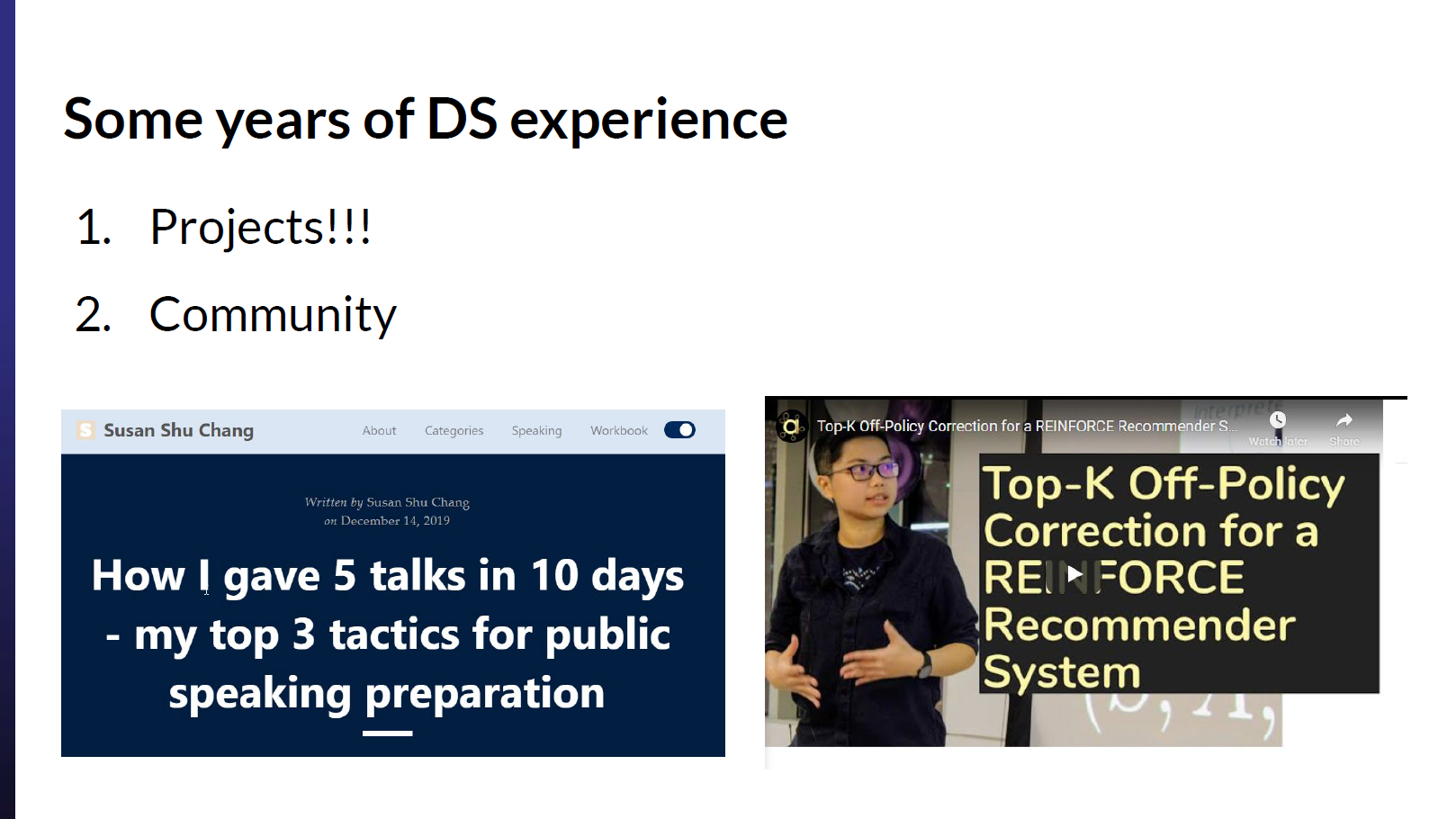 Community is helpful to an experienced data science professional as well.
Community is helpful to an experienced data science professional as well.
I am lucky to have become an organizer of the past Aggregate Intellect community events, in the days when they were in-person. After going remote, I’ve had the opportunity to host many speakers on reinforcement learning on the YouTube channel.
This is yet another activity that doesn’t have immediate payoff, and thus I see many people not even consider spending some time to give back to the community. However, I did it out of fun, maybe since I always had the habit of an “extracurricular” since childhood, and felt bored without one while working full time.
I wrote in detail how to get started in the tech/machine learning community in this post - whether you prefer to be an attendee or move toward organizing and speaking.
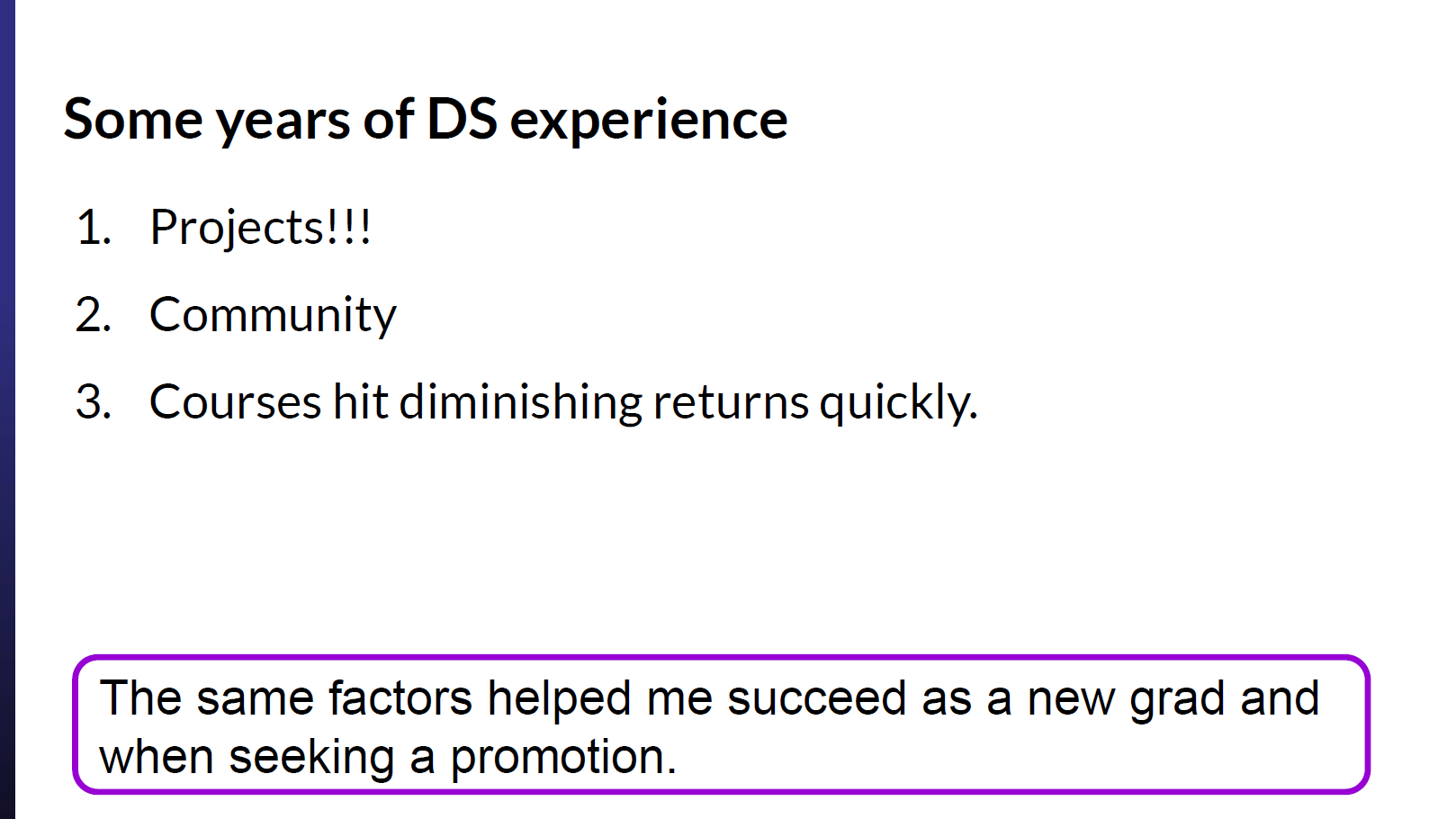 Finally, the same diminishing returns apply to online courses and certifications.
Finally, the same diminishing returns apply to online courses and certifications.
As an experienced data science professional, it still makes sense to continue to self-learn. This can definitely take the form of using online courses, or considering a master’s degree.
I recommend taking a look at the opportunity costs for your own specific situation, and read this article with a detailed analysis on the pros and cons of taking more online courses or a master’s degree, mid-career or otherwise.
Conclusion
Here are the main points that worked for me in my career thus far, and I hope can be helpful for you to apply to your own specific situation:
- I learned about data science after undergrad. Whether you start earlier or later than that, it shouldn’t be an issue, unless you let it be.
- There are diminishing returns to taking online certifications and courses - once you have the basics, I recommend doing projects. They are better learning tools, as well as a better signal to employers.
- Attending events consistently and building side projects both rarely have immediate payoff, therefore many people fall off the wagon. I stuck with them, and they both yielded massive advantages to my career growth.
Thank you for reading this post. As usual, you can find me on LinkedIn or hello@susanshu.com to discuss this post.